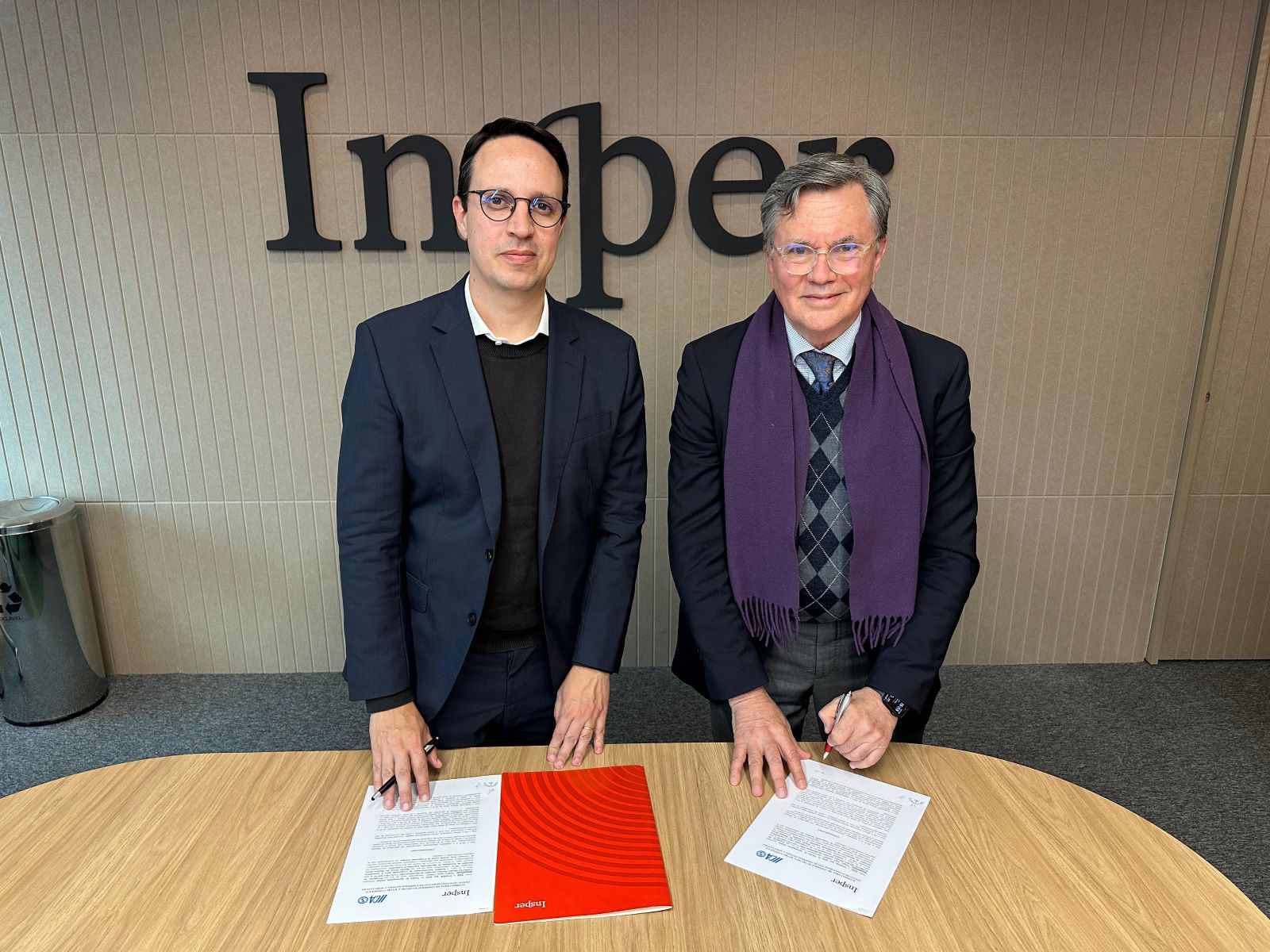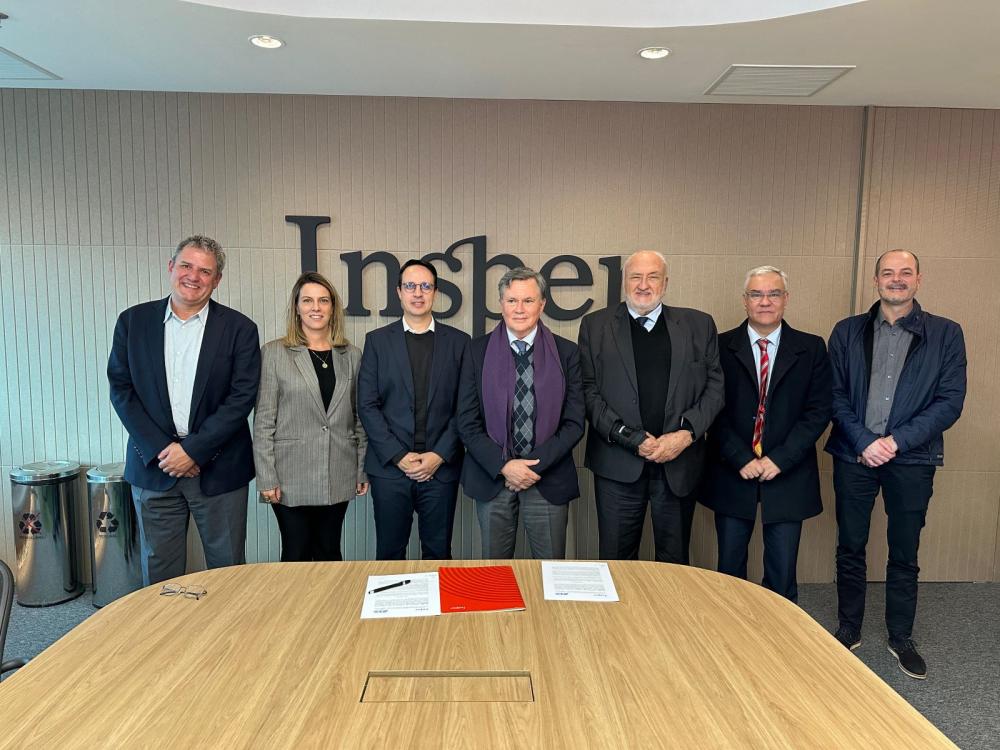With an initial duration of two years, the agreement opens a series of opportunities for collaboration with the INSPER Agro Global program, which since 2019 has been analyzing the vectors of transformation and the insertion of Brazil in global agribusiness, contributing to the design of public policies and the training of leaders in the public and private sectors.

São Paulo, 19 August 2024 (IICA) – The Director General of the Inter-American Institute for Cooperation on Agriculture (IICA), Manuel Otero, was received in São Paulo by Guilherme Martins, President of INSPER (Institute of Education and Research), one of the most prestigious business schools in the world, with whom he signed an agreement for technical and scientific cooperation.
The INSPER-IICA alliance will aim to facilitate the exchange of knowledge and information related to the agricultural sector, seeking to offer solutions to promote competitiveness, food security, and environmental protection through innovation and sustainable development, based on agribusiness.
In addition to Martins, Otero was welcomed by Rodrigo Soares, Vice President of Academic Affairs at INSPER.
With an initial duration of two years, the agreement opens a series of opportunities for collaboration with the INSPER Agro Global program, which since 2019 has been analyzing the vectors of transformation and the insertion of Brazil in global agribusiness, contributing to the design of public policies and the training of leaders in the public and private sectors.
This area is led by distinguished professor Marcos Jank, one of the world’s leading experts in agri-food systems, who was recently awarded the IICA Chair recognition.
Jank was present at the signing of the agreement, which brought together teams from IICA and INSPER.

The “IICA Chair” recognition was created with the belief that agriculture should be an activity that promotes opportunities and progress, and to highlight contributions in a particular field of study, while promoting and stimulating new knowledge about agriculture and rural development in the Americas.
This recognition is also part of the modernization of IICA’s technical cooperation model and management, to strengthen its key role in the hemisphere’s development and fully leverage its institutional role as a bridge between knowledge supply and existing demand, with a view to offering innovative solutions in rural areas.
At the meeting held at INSPER headquarters in São Paulo, the Director General of IICA outlined the possibilities for joint actions between the two institutions and highlighted the guiding principles of the Institute, emphasizing the position of Latin America and the Caribbean as guarantors of global food security.
INSPER works on cross-cutting issues such as sustainability, economics, and business, noted President Guilherme Martins: “We work on four fronts: academic research, knowledge centers, innovation and entrepreneurship, data and artificial intelligence. In a multidisciplinary and cross-cutting manner, we study and propose solutions in the areas of business, economics, public policy, law, engineering, and computer science. This alliance with IICA can help us access experts and knowledge to offer better solutions to society,” he explained.
Otero, for his part, pointed out that “agriculture faces enormous challenges, such as food production, the energy transition, and sustainability. Supranational alliances with the public and private sectors are key to achieving good results in the Southern Hemisphere. We have offices in 34 countries and experts who can exchange knowledge with INSPER researchers and work together.”
Among the topics to be explored within the framework of the technical cooperation agreement are seven areas of IICA’s work: innovation and bioeconomy; territorial development and family farming; international trade and regional integration; climate action and agricultural sustainability; agricultural health, food safety and quality; digitalization of agri-food systems; and gender and youth equity.
Founded in 1987, INSPER is a non-profit organization dedicated to education and research, offering undergraduate and graduate courses and executive training. Its mission is to promote the transformation of Brazil through the training of innovative leaders and applied research, operating with academic excellence and an integrated vision of areas of knowledge.
More information:
Institutional Communication Division.
comunicacion.institucional@iica.int











